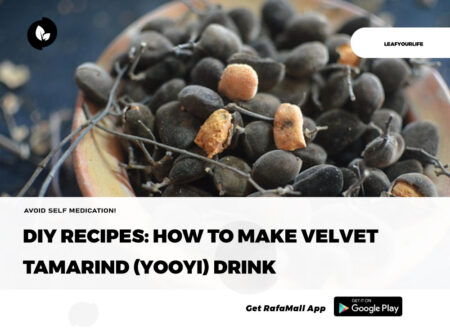
Once thought of as a disease of the West, the prevalence of diabetes mellitus is increasing at alarming rates in many other areas of the world. Diabetes promises to become an even larger public health issue with significant social and economic burden with clinical practice and public health policy implications.
Diabetes is an oxidative stress-related metabolic disorder in which glucose cannot be utilized leading to rising in blood sugar levels. Elevated glucose reacts with plasma proteins to form advanced glycation end products which trigger the production of reactive oxygen species. Several reports on the incidence of Type I (insulin-dependent) diabetes mellitus have suggested that the incidence is increasing (Wright E, Scism-Bacon JL, Glass LC 2006)
Managing blood sugar levels is important for diabetics. Did you know that mango leaves can exhibit surprising effects on controlling blood sugar and managing diabetes? Know how you can add mango leaves to your diabetes diet. You need to add such foods to your diet which do not result in any major fluctuations in blood sugar levels. Foods that can lower blood sugar levels are considered to be a good addition to the diet. One such remedy for diabetes that can control diabetes and reduce blood sugar levels is mango leaf. Mango leaves are loaded with properties that can help you manage diabetes.
Diabetes management (controlling blood sugar levels) can also help you prevent the complications of diabetes. ”Mango leaf extract (Mangiferin) has the ability to inhibit the enzyme alpha-glucosidase, which helps reduce carbohydrate metabolism in the intestine, and hence blood glucose levels (Gondi, M., & Rao, U. P. (2015)).
Mangiferin, a bioactive substance found in mango seeds (0.42mg/kg), peel (1690.4mg/kg), and pulp (4.4mg/kg), is thought to have hypoglycemic properties. Mangiferin is a xanthone with high antioxidative activity. It inhibits sucrase, isomaltase, and maltase, and thus decreases glucose intestinal absorption. Mango also contains dietary fiber, which can reduce the digestion of carbohydrates and lower glucose absorption (Masibo M, Qian 2008;)
Mango leaves have the capability to improve insulin production and the distribution of glucose. They can help in stabilizing blood sugar levels. Mango leaves are also loaded with pectin, vitamin C, and fiber. Together they are beneficial for both diabetes and cholesterol. Peel is a major by-product during the processing of mango fruit into a pulp. A recent report indicates that the whole peel powder ameliorated diabetes. (Gondi, M., Basha, S. A., Bhaskar, J. J., Salimath, P. V., & Prasada Rao, U. J. (2015)
Human studies suggest that mango consumption may improve postprandial glucose and markers of atherosclerosis. Mango consumption for 42 days has been shown to decrease systolic blood pressure in lean subjects, but not in obese persons. Hemoglobin A1C improves significantly in obese but not lean subjects. Reduced expression of PAI -1, associated with reduced risk of atherosclerosis and thrombosis, is observed in both lean and obese individual
Diabetes diet: How to use mango leaves to lower blood sugar levels?
You need to follow a very simple method to use mango leaves for diabetes. All you need to do is take 10-15 mango leaves and boil them in water properly. After boiling the leaves properly, leave them overnight. Strain the water and drink it the first thing in the morning on an empty stomach. Drinking this concoction every morning regularly for few months may have magical effects on your blood sugar levels.
Nonetheless, if you are a diabetic, you must carefully watch your diet. Follow all the instructions given by your doctor carefully to treat diabetes effectively. Eat a healthy and balanced diet, exercise regularly, and take less stress.
Again, mango does not result in postprandial hyperglycemia in normal or diabetic individuals and emphasizes that naturally occurring sugars from fruits should be preferred over starchy refined ones such as bread. Mango and other seasonal antioxidant-rich fruits are expected to have therapeutic value against oxidative stress-related disorders and can be incorporated moderately as a part of a healthy balanced diet by all individuals
Mangoes may be eaten in moderation by persons with diabetes. While they are purported to have multiple benefits on metabolism, one must be mindful of total caloric intake, portion size, frequency and glycemic load, while consuming this fruit.
Disclaimer: This content including advice provides generic information only. It is in no way a substitute for a qualified medical opinion. Always consult a specialist or your own doctor for more information. NDTV does not claim responsibility for this information.
Wright E, Scism-Bacon JL, Glass LC 2006. Oxidative stress in type 2 diabetes: the role of fasting and postprandial
glycaemia. Int J Clin Pract. 2006 Mar; 60(3): 308–314.
Rodríguez-González, S., Gutiérrez-Ruíz, I. M., Pérez-Ramírez, I. F., Mora, O., Ramos-Gomez, M., & Reynoso-Camacho, R. (2017). Mechanisms related to the anti-diabetic properties of mango (Mangifera indica L.) juice by-product. Journal of functional foods, 37, 190-199.
Masibo M, Qian H. Major mango polyphenols and their potential significance to human health. Compr Rev Food Sci Food Saf 2008; 7: 309-319
Fang C, Kim H, Barnes R, Talcott ST, Mertens-Talcott SU. Daily mango (Mangifera indica L.) Consumption for 42 days differentially modulates metabolism and inflammation in lean and obese individuals. FASEB J 2017; 31 (Suppl. 01) 431-433
Gondi, M., & Rao, U. P. (2015). Ethanol extract of mango (Mangifera indica L.) peel inhibits α-amylase and α-glucosidase activities, and ameliorates diabetes related biochemical parameters in streptozotocin (STZ)-induced diabetic rats. Journal of food science and technology, 52(12), 7883-7893.
Lam, D. W., & LeRoith, D. (2012). The worldwide diabetes epidemic. Current Opinion in Endocrinology, Diabetes and Obesity, 19(2), 93-96.
Patnaik, R. (2014). Mango leaves in treating diabetes: A strategic study. Int J Innov Res Dev, 3(12), 432-441.
Ray, K. S., Paharia, N. V., & Singhania, P. S. (2017). Mango: Yes or no for individuals with diabetes. Endocrinol Diabetes Clin Med Res, 1, 103.
Ray, Kasturi Sen, Neha V. Paharia, and P. S. Singhania. “Mango: Yes or no for individuals with diabetes.” Endocrinol Diabetes Clin Med Res 1 (2017): 103.
Onkamo, P., Väänänen, S., Karvonen, M., & Tuomilehto, J. (1999). Worldwide increase in incidence of Type I diabetes–the analysis of the data on published incidence trends. Diabetologia, 42(12), 1395-1403.












